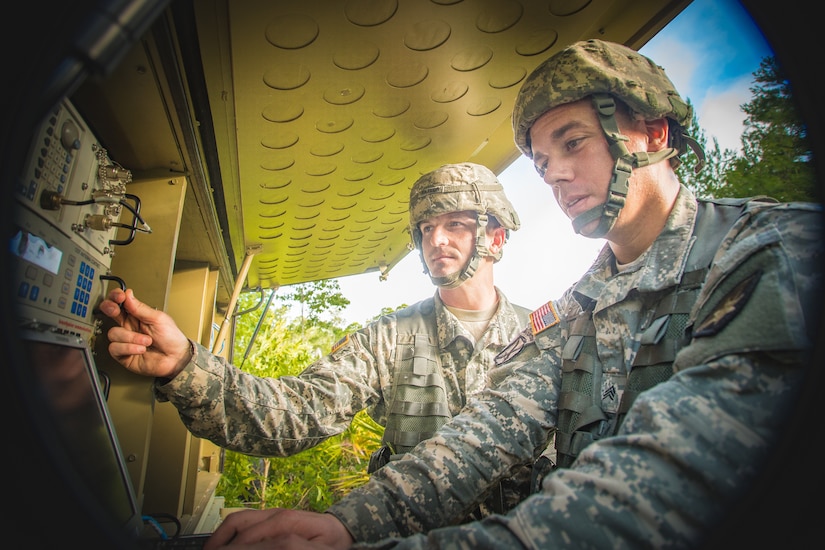Feb. 23, 2021 | , DOD News
Engineers are critical to the Department of Defense achieving goals and priorities in space, said the department's principal director for space.
"There are many important roles that engineers play" said Lindsay Millard, the principal director for space with the Office of the Undersecretary of Defense for Research and Engineering.

Top among the priorities that engineers are tackling now is how to use cislunar space — the area between Earth and the moon.
"There are many ongoing efforts in this area across the department and agencies," said Millard. "We're going to be taking a look at how we can best enable and use the space between the Earth and the moon, especially because we have humans who will be traveling in that space in the future."
With travel into space becoming a priority, Millard said, the way humans leave Earth's surface is also becoming more critical. She said that engineers are now focused on both rapid and responsive launch.
"Rapid implies launching on a cadence. There are some companies that are achieving that goal right now, and other companies are moving toward it," Millard said. "Responsive launch is actually having satellites ready to go on the ground, should there be an unexpected event."

DOD will be putting several satellites in space in the coming years, Millard said. Finding ways to protect what's already on orbit is also a priority for department engineers.
"Satellites are easily tracked," Millard said. "How do we protect and defend those if needed because they are key to enabling our DOD forces on the ground?"
Building a robust space infrastructure to take care of service members on the ground will require advancements in communications and encryption technology — another area where department engineers are now laser-focused, Millard said.
"There are a lot of new encryption types that are coming on board," she said. "Finding a way to get those into satellites quickly is important to help us remain secure across constellations, but also for single satellites, in general."

Getting artificial intelligence and machine learning capabilities into those satellites is another area department engineers are currently investigating, Millard said.
"We're leveraging cloud-enabled computers on the ground to put signatures or secure dynamic tasking across satellites in orbit that have relatively less compute power," Millard said. "We're also looking at how to make big capabilities on smaller satellites."
Among other things, engineers across DOD are focused on space, cyberspace, hypersonics, directed energy, quantum science and fully networked command, control and communications.
As an aerospace engineer, Millard said she's guided in her work by the idea that she's responsible in many ways to the service members who depend on something she may have had a part in designing for them to do their jobs or even to protect them.

"For me, personally, I'm very much motivated by protecting the people who are in harm's way," Millard said. "I think that DOD has a unique perspective and opportunity to do that in the sense that we can hope to decide how to best protect them."
Engineer Week runs Feb. 21-27, and Millard said it's a good time for aspiring engineers and engineering students to think about working within the DOD. She said the defense department is a unique employer that, in her own experience, offered opportunities that might not be found in other places.
When service members don protective gear, use new equipment that's been fielded, or connect across space with the latest communications tools, they might not be thinking of the engineers who designed them. But, Millard said, those engineers are absolutely thinking of service members.
"We need and want to support you," she said. "If you ever want to talk with us, please do so — because we've got your back."






No comments:
Post a Comment